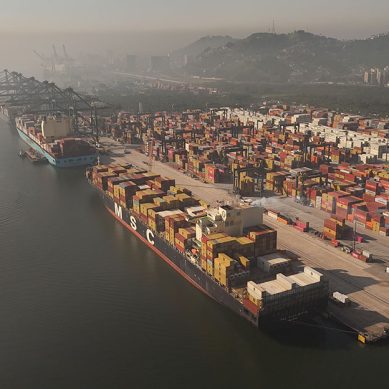
Imagine that you have suddenly been directed to “increase the global leadership competency” of your company’s mid-level managers, and been given a budget to accomplish this miracle. What is the optimal approach?
Unfortunately, the one frequently chosen by novices is to schedule a period of time in which high-potential leaders are sequestered in a “training” environment and subjected to a series of disconnected (and boring) lecture-based workshops intended to build the skills they will need to succeed.
Wrong answer! You might as well flush your money down the toilet. According to the American Society of Training and Development, 50 per cent of what is learned in “training” is immediately forgotten upon exiting the training room.
Fully 80 per cent is forgotten within two months. And a year later, well, you’d be hard-pressed to get most participants to recall even a single “key insight” from their expensive experience. Just stringing together, a series of training workshops, like pearls on a necklace, won’t transform your people into effective global leaders.
Thinking from the future, you’ve got to take an integrated approach, where the goals and measurable results drive every decision in the programme. This is what’s sometimes referred to as “design thinking”, as opposed to a problem-solving approach. The only purpose for the programmes that our team delivers is to enhance business results through changes in behaviour, communication and mindset.
Design your global leadership development programs with the goals clearly in mind, and assure that the whole programme hangs together in a way in which every part supports every other part in perfect harmony. Anything else is just a Frankenstein, stitched together – functioning, but awkward, ineffective and possibly even repulsive to participants.
Insufficient preparation
Your employees are busy. When you select them for a prestigious global leadership development program they still have a full-time job to occupy their every waking moment until that program begins. It’s absolutely imperative that they and their managers understand the importance of the programme, and how critical it is for them to arrive prepared to make best use of this precious experience.
Every truly effective global leadership development programme does more than talk about global leadership, it requires participants to actively engage in a challenging global team project that strengthens their ability to achieve real world results in our increasingly VUCA world.
These projects must be aligned with the strategy and core competencies of the company, and this requires significant work prior to the program in order to assure that the projects will be relevant and valuable.
In addition, participants must take time to think about their own personal goals for participation, and enlist the support of their managers, other colleagues, and even their families, so that they can make best use of their opportunity for a breakthrough in their ability to lead globally.
Distractions during the programme
No matter how important the development of the top talent is in your organization, it will never be the most urgent task vying for the attention of the participants. More pressing matters intrude on the most spectacular of professional development opportunities. Participants frequently find themselves fully occupied by daily tasks while simultaneously expected to attend and engage in a transformative experience that will shape them into the kind of global leaders they admire. You can imagine how ineffective this is!
The support of their direct manager is vital, and delegation – a kill critical to the success of true leaders – is key to freeing up participant bandwidth and assuring that the programme is not just something squeezed in between routine meetings, phone calls, email and other day-to-day job responsibilities.
As short-sighted as this is, it’s not unusual to find that a participant has been told by their manager to prioritize urgent work tasks above program participation, and even to skip attending parts of the program in favour of fulfilling day-to-day job responsibilities. And it’s far too easy to make the argument that a business crisis demands the attention of someone who is otherwise committed to a long-term global leadership development programme.
Beware! This is a slippery slope! Before you know it 1/3 of the participants are arriving late, scooting out for lunch meetings, or leaving early to attend a “critical” appointment. The negative impact to the group experience, their team project, and their own development as a global leader, is palpable.
What works better? A signed agreement between the participant, their manager, and the programme sponsor, stating upfront the time commitment and attendance requirements, and clarifying expectations on all sides, makes the message clear – “This programme is strategically important, and there is no excuse for not attending and taking full advantage of this opportunity to learn to lead our company powerfully into the global future!”
Post–programme support and accountability for results
And it doesn’t get any easier when the programme ends. David Rock and Jeffrey Schwartz, in “The Neuroscience of Leadership”, report that such development programmes alone increased productivity by 28 per cent, but the addition of follow-up coaching increased productivity by 88 per cent. And yet many programmes end abruptly, without sufficient thought being given to the follow on support required for the participants and the company to derive the full benefit of the program.
Some look to program evaluations as a measure of success. But, in the end, the value of the program is not measured by the course evaluations, it is measured by the long term business results achieved by those who participated in the programme.
It’s relatively easy to achieve a high rating on a course evaluation for a workshop or training programme. All that is required is to be entertaining and require little of the participants. However, the real business benefit cannot be measured solely by programs with high participant evaluation scores. The value of a global leadership development programme must be measured against the goals and metrics of success for the program, not “smile sheets” a common euphemism for evaluations.
If participants are not asked to deliver business benefits as a result of their participation, little will change. But if managers support their participation during the program, ask them to report on their status and progress throughout the programme, and hold them accountable for breakthrough business results after the programme ends, participants are far more likely to contribute something tangible to the company as a result of the experience.
Some ways to enforce accountability include:
! Ask participants to adopt new roles with greater responsibility after the program.
! Require their participation in executive development coaching after the program ends to
strengthen the gains that they have made in their global leadership.
! Give them the responsibility to mentor and coach the next generation of participants.
! Involve them in strategic dialogues with senior executives going forward.
! Put them in a leadership role in special projects that leverage their developing skills.
! Hold them accountable for being role models of global leaders.
In short, don’t just let them return to their jobs after the program ends. It is well known that people rise or sink to the level of expectations set for them. Make sure that your expectations are challenging, yet achievable, and supported by managers, senior executives, alumni programs, and your HR team.
The twisty path to greatness
It’s a twisty and treacherous path that leads to greatness in the competitive global business environment, but your ability to survive and thrive as a global business depends upon your people having the ability to navigate that path with grace and agility.
If you are responsible for developing your company’s global business leaders of the future you have tremendous influence on how well positioned your company is to succeed in this incredibly competitive global business environment.
By avoiding these seven deadly sins you dramatically increase the chance that your company will survive and thrive well into the future.











